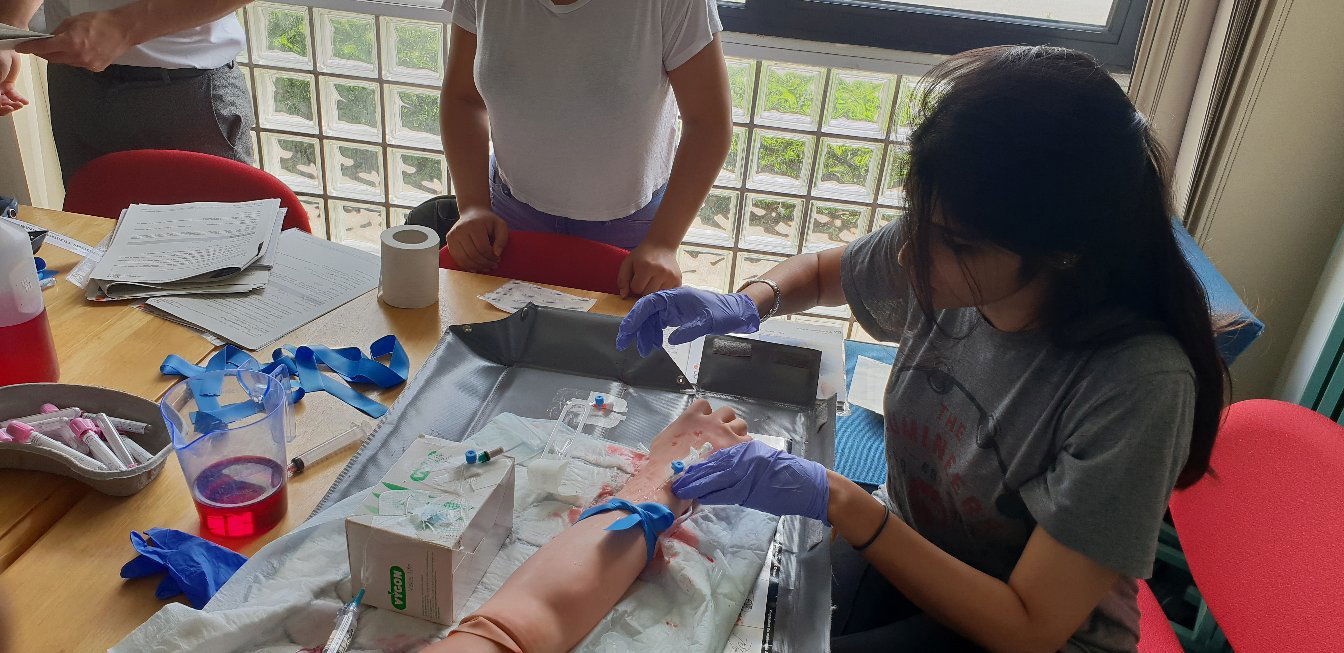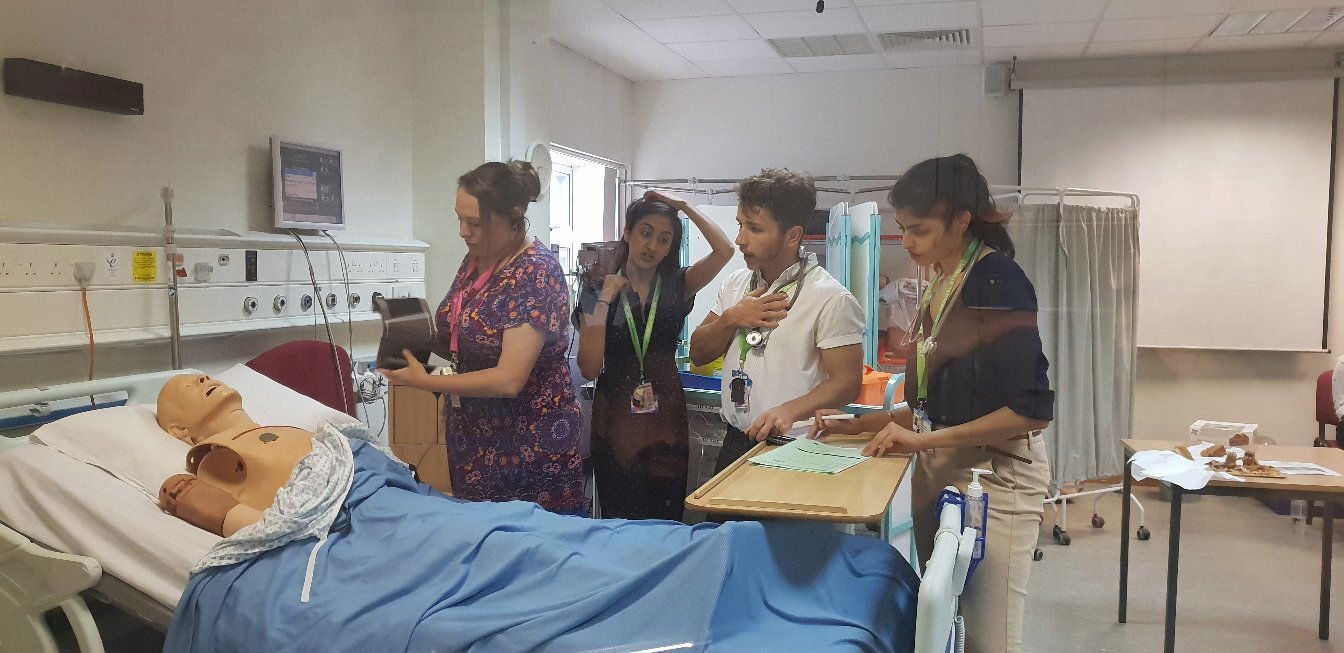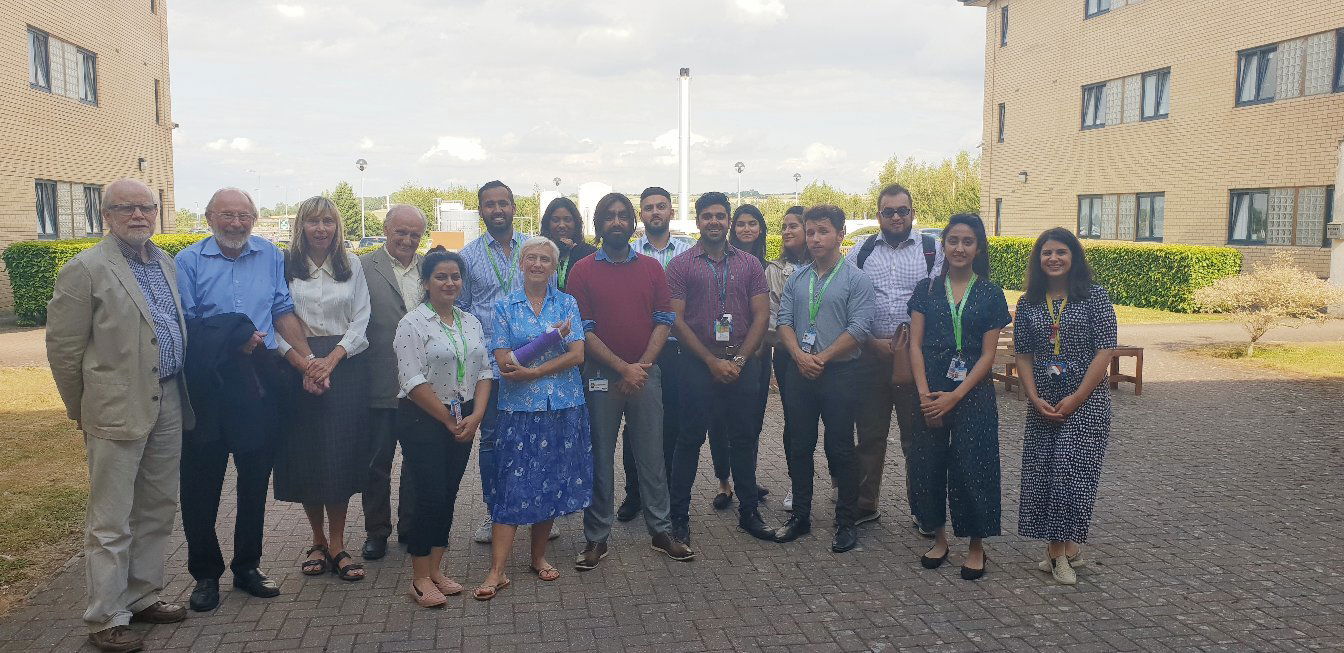Summer Mentorship Programme for International Medical Graduates 2019. A.Daryanani, M. Razzak
Why did we do it?
Many hospitals across UK are recruiting graduates from medical schools abroad. Whilst this provides invaluable gains for both sides, there are often cultural and professional differences that can make their transition into UK practice particularly challenging. Often these matters are not factored into the mandatory induction process, which has the potential to affect the wellbeing and training opportunities of these junior doctors.
What did it involve?
Over a four week period, we aimed to highlight the roles and responsibilities of a junior doctor in the NHS.
Our course piloted in July 2019 at the Great Western Hospital, Swindon and featured 8 medical students in their penultimate year at a university in the Czech Republic.
Our curriculum was designed in accordance with "Outcomes for Graduates" set by the General Medical Council1 (GMC) and was delivered by a multidisciplinary team of healthcare professionals.
The highlights from the course included:
• Communication Skills (Breaking bad news, "Do Not Resuscitate discussions", difficult patient/relative consultations.)
• Simulation Teaching (medical and surgical emergencies.)
• Interview Skills (Verbal and Non-Verbal Communication Skills, Mock interview)
• Prescribing Skills Workshop (Analgesia, Antibiotics, IV fluids and much more)
• General Medical Council (GMC) workshop for international students (delivered by our Regional Liaison Adviser.)
• Clinical Skills Workshops (Venepuncture, IV Cannulation, Blood Cultures, Nasogastric Tube insertion and Urinary Catheterisation.)
• Interactive problem-based learning masterclasses to develop a systematic and practical approach to managing situations commonly faced by junior doctors.
• Shadowing doctors, surgeons and many other healthcare professionals in a variety of clinical environments to adopt a holistic and multidisciplinary approach to patient care.
• A customised medical portfolio based on the Foundation Programme E-portfolio to guide clinical-based learning.
• Conducting a clinical audit, to gain first hand experience of clinical governance and quality improvement in the NHS.
What were the results?
We were able to demonstrate a measurable improvement in the students’ confidence in all of the following domains:
1. Professional Values and Behaviour (54% increase)
2. Professional and Communication Skills (36.4% increase)
3. Professional Knowledge (43% increase)
4. Prescribing Medication (88% increase)
5. Practical Skills (65% increase)
Conclusions
This process highlighted aspects of international medical school curricula that require further development and optimisation to enable their graduates to practice safely in the U.K. In particular, lack of practical and communication skills training alongside unfamiliarity with guidelines and policies specific to the U.K were the most significant issues. In future, we would like to recruit more students to improve the reliability of our intervention and compare their performance with a control group.
Our course has been presented to the President of the Royal College of Physicians and the Foundation School Directors Meeting in July 2019, and has received excellent feedback.
Course Testimonials
"Participating in this course enabled me to gain invaluable insight into the life of a Junior Doctor, within the NHS. The course successfully combines interactive seminars, simulations and ward-based teaching to create a platform, whereby you can apply knowledge gained at university in the context of a working environment. Not only did the programme facilitate in bridging the gap from student to Junior Doctor, but it also helped me to build on the necessary skills to successfully apply and obtain a position in the NHS. I highly recommend this course to all International Medical Graduates looking to transition into the NHS upon graduation."
Nikita Patel
Final Year Medical Student, Faculty of Medicine, Charles University in Prague
“ Gaining a place within the GWH Mentorship Scheme provided me with a powerful insight into the daily routine and core skills required by a junior doctor. The program allowed me to consolidate my academic knowledge and gain confidence in a hospital environment whilst integrating within the wider multidisciplinary NHS team. I believe that this rare opportunity will eventually support my transition from a medical student to and FY1 as it provided a platform for learning, engagement and personal development.”
Pharveen Kaur Jaspal
Final Year Medical Student, Faculty of Medicine, Charles University in Prague
Course Photographs

Clinical Skills Training-IV Cannulation

Medical Simulation Training

Communication skills training with professional actors

And most importantly, enjoying the British weather (we were lucky that day!)